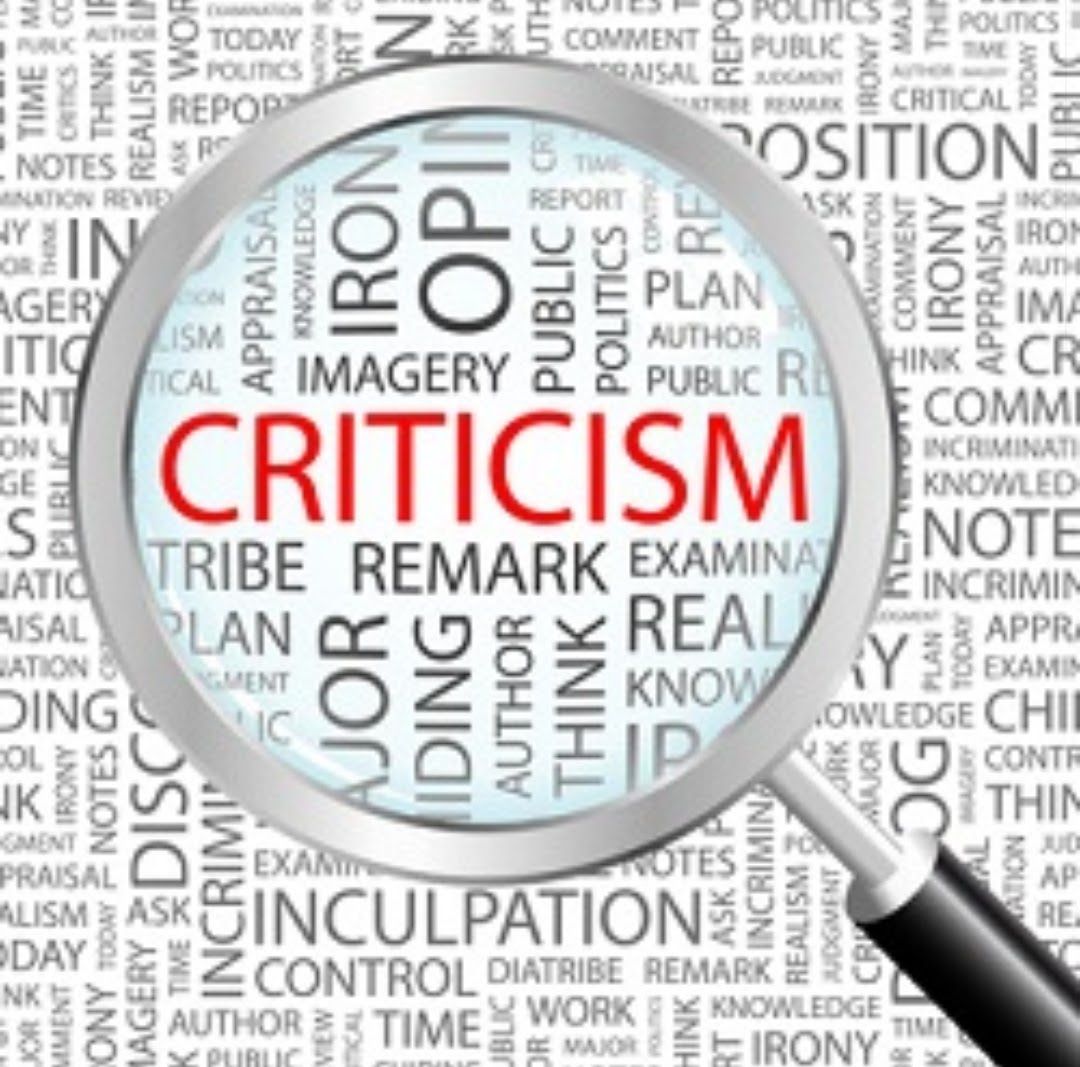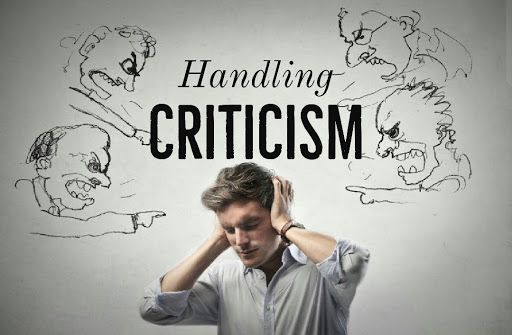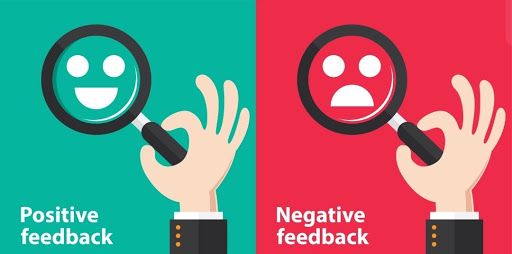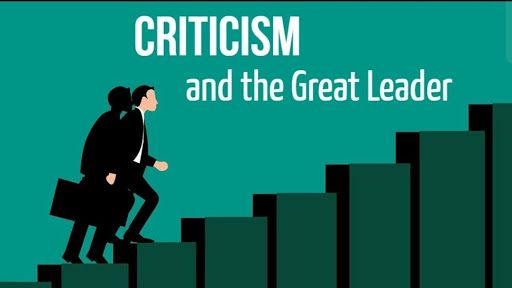Criticism - A Curse Or A Boon

It's easy to give advice to others but it's very hard to conform when you're the one on the receiving end. The biggest challenge is how to keep doing what you enjoy in the face of constant criticism of your work. Why continue? Take a moment, and think calmly. Is it just me or is it happening to others too? You'll be very surprised at what you find.
Whether it's writing, starting a company, or simply competing a 100-metre sprint for your school team, you're going to be criticised—it's literally inescapable. To be honest, embarking on any project means that you must be prepared to be judged. The world's quick to judge, whether constructive or negative critiques. Now to the most critical issue—How does one handle criticism?

I recall waking up around 6:30 a.m. one morning and the first thing I looked up on my phone was Wattpad, even before I left the comfort of my bed. A group member who had only read a few chapters of my novel left me with critical reviews. They basically asked me if I was confused about the genre of my own novel and put my book under the wrong category in haste. Let me tell you very frankly, that comment stung—BAD. While I was ready to receive both constructive and negative reviews, I was not prepared for what that person had commented. I was in a terrible mood the whole morning, sulking on my bed.
As I cooled down a bit after wasting a few hours, I wondered if that person was indeed right. The person was much more experienced than I was, I only just started out. I immediately started reading up on the different genres and even rewrote the blurb of my published story that I had been procrastinating for a while. It gives me great pleasure to actually say it out loud—that particular critique helped me understand the difference between urban fantasy and paranormal romance. On a side note, I won the third "Best Blurb" spot, hosted by the 2020 Creory Awards.
But that doesn't immediately imply that any time someone criticises your work, the result will be positive. There are instances where readers nonchalantly offer negative reviews only because they don't like a particular character's personality while you could get positive feedback from a different reader for the same character. It varies and most importantly, it's a gamble. Not everyone is going to like your work—if you remember this mantra, perhaps, dealing with criticism might not turn out that difficult.
I recently interviewed Stacie Evans , author of the One Series which is now available exclusively on Amazon, for a community project.
When asked about the first thing that came to her mind when someone was critical of her work, this is what she had to say.
"It depends. If it's just one person reading my story, I try to take what they say with a grain of salt. If they are extremely harsh, then I do feel upset. Now, if I get a consensus with multiple people critiquing my story, and they all say the same thing, then I'll start to rethink some things. Not immediately, but eventually I'll make the necessary changes based on consensus."
She also stated she'd only make whatever improvement is required. She wouldn't cancel a project simply because a lot of people are very critical of her work. She'd rather just look at what went wrong and find out how to shift the views from negative to constructive.
How did you differentiate between the good and bad criticisms? Do both of them have the same impact?
"They both have different impacts. If I get mostly positive criticism in the plot and point out technical errors, then I would take that as the plot didn't need any work. Now, if I get comments saying the plot needs work, as long as multiple people say the same thing, then I'll make the changes. I'm not changing my story over one person's opinion."
Another interesting reply from Stacie, what surprised me was when she was asked about the biggest criticism she'd ever faced for her work.
"The biggest one was regarding the fourth chapter of my second The One Series book, The Wanted. The second half of that chapter made a lot of people angry. You can look at the comment section to see what I mean. A lot of people were MAD. I wasn't hurt or upset by this. If anything, it made me determined to fix the issue. I rewrote that chapter. I have yet to see anyone from the Coalition reread that chapter. I hope it lessens everyone's anger towards both me and the chapter. It'll most likely annoy a lot of people, but I would hope I won't feel everyone's wrath this time around."
I am sure that Stacie faced a lot of scrutiny on her writing journey but I'm glad to see her positive outlook given all she's been through. Wishing her good luck and hoping to see the remaining parts of her One Series book published on Amazon soon.

To all of you budding authors or those who hopefully aspire to be authors someday, I've listed my top five tips that I personally follow on a regular basis when attempting to deal with criticism:
LISTEN
It is one of the biggest problems for all of us, in truth we are not really listening. Trust me, we don't, we just want to defend. Sounds harsh, huh? Yet this couldn't have been more right. Have an open mind and at least listen patiently to what the critic may have to say.
DON'T TAKE IT PERSONALLY
If someone is criticising your work, that doesn't mean they are criticising you. Your story or the characters in there have nothing to do with your personal life unless you are writing an autobiography. So, what is there to get so defensive and take offence with?
LEARN TO DIFFERENTIATE
This is really crucial because it could have a significant effect on your attitude. Not all criticism is worth pondering over—both positive and poor criticism will be present. Before jumping to a conclusion one needs to carefully analyze the criticism, weight it to understand whether it actually needs pondering or not and if it's one of those you don't need to pay attention to.

QUESTION YOURSELF FIRST
If too many people are pointing at the same flaw, then indeed, there must be a flaw to consider in there. Learn to question yourself—Is this what I tried to present and convey to my readers? Many authors, particularly new ones, have trouble presenting their characters the right way which could turn into a problem later on. Remember one step at a time and there are always flaws in the first draft—no one is born a pro.
WHO ARE YOUR TARGET READERS?
Having a particular age group of people as your target readers is very popular. For instance, if you're writing teen fiction I doubt readers above the age group of 30 would be interested in reading a sappy high school love story. So, you will receive negative feedback from that group obviously. So keep your target readers in mind before you spoil your mood about a negative comment left by a forty-year-old in one of your chapters.
Bear in mind that life doesn't evolve if nobody criticises you or your work. Criticism is what helps us in the long run. If you're always assuming you're the best and you can never go wrong, you'll need to rethink and figure out your shortcomings. It's as simple as everyone says, "If you're the smartest person in the entire room, then you're definitely in the wrong room."


Content Created by Rim [jhimrim]
Bạn đang đọc truyện trên: AzTruyen.Top